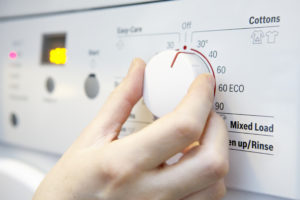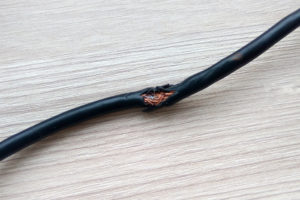What on Earth is the matter if my washing machine has no hot water?

There are several potential reasons why you may have no hot water in washing machine. Before you go on an investigative mission to find the problem, however, take note of this:
Do not mess with your washer’s electrics if you have no electrical experience. You could unintentionally injure yourself; you could create a dangerous situation that affects your home’s entire electric system; and you could make it almost impossible for a qualified repair person to fix the problem. And, of course, you’ll negate your appliance insurance policy.
Now, let’s take a look at why your washer is not getting hot water.
-
The heating element has gone phut
One of the wonderful things about modern washing machines is that they have all sorts of systems in place to detect errors of any kind, including problems with heating water. They gauge the washing machine’s water temperature and if, according to Peter Tyson, it doesn’t reach a certain temp within a certain period of time the system will stop the wash and flash the appropriate error code.
Unfortunately, somewhat older washers don’t have displays that indicate a precise fault. They also don’t have the advanced systems that will stop the wash mid-cycle. Instead, the cycle will go on and on (and on and on) until the water eventually heats up to the correct temperature or you run out of patience and switch off the machine.
If you have an older model and you find that the washing machine is not heating water consistently, then the element might be faulty. The same is true for a modern washer that registers the problem.
You can test the element to see if that is where the fault lies. However, you need specific equipment, for example, a continuity meter or multimeter. You also need to know how to use and read a multimeter; you need to know about open and closed circuits; and you need to know how to safely access the element’s connections.
You can see why it’s usually best to go straight to a professional appliance technician. If, for argument’s sake, you know all of the above and you want to test the element yourself, you’re looking for a measurement of 20 to 50 Ohms. Anything in the range indicates a functioning element; if it’s out of range then the element is faulty.
-
The element’s heat protector device is faulty
It’s unlikely that you’ve heard of a thermal overload cut-out (TOC), and that’s fine. As a layperson you aren’t expected to know the technical ins and outs of heating systems. As a matter of interest, think of a TOC as a fuse, when it trips there is probably a serious problem; for example, your washing machine’s temperature has gone sky-high.
The problem could also be idiopathic – there is no discernible reason for the TOC to trip. Call a qualified technician to diagnose and repair the problem.
-
There is a problem with the wiring

Another potential problem with your washing machine’s hot water system is defective wiring. Wiring problems can be fairly easy to spot; the wire’s plastic coating (insulation) will look burnt (or even smell burnt). The coating could be broken and the wires exposed. The wires could also be frayed.
It’s exceptionally risky to mess with the wiring on your own. The danger of electric shock is enormous. Any problem with the wiring should be seen to by a professional technician.
-
Not connected to the tap
Washing machines that heat their own water are the norm, so it’s unlikely that you’ll have to ensure that your washing machine is connected to a hot water tap. You will have to check that your washer is connected to a tap, however. No connection, no hot water in your washer.
-
Software bugs
Modern washers come with advanced software that is designed to operate the machine and monitor performance to detect and report faults. However, as we know, software is not prefect and error-free. It’s possible that there is a fault that prevents your washer from heating water for the wash cycle which the software does not detect. You will need to call a specialist – a specialist who has experience with modern washers and with your particular brand.
As you can see, a modern washing machine that heats its own water can have simple and complex faults that affect water temperature and performance. Regardless of the complexity of the problem, it’s highly recommended that you leave repair of your machine to professionals. The risks of injury and further damage are too great to chance your luck. In addition, if you muck around and make the problem worse, chances are good your appliance insurer will refuse your claim.
